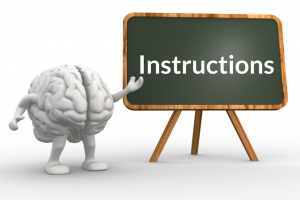Q: Am I a bad teacher when I refuse to help my students?
A: No, you are NOT. Full stop.
As teachers we often hear about our students’ problems or some situations make our learners stop attending. It is in our nature that we want to help. There and then. Are we, however, really helping them?
We teach a lot of vulnerable adults or children from disadvantaged families or communities. Yes, they can suffer through lack of knowledge of their rights and responsibilities and/or inability to express their needs effectively. They need somebody who is able to identify and solve their problems but also to be able to prevent the problems from recurring or new problems from arising.
What about your teaching time? Is anyone else going to teach your class while you are dealing with a pastoral case? Also, what qualifications have you got? Oh, I see, so you are not a trained advisor who can deal with an immigration, homelessness, benefit, debt, housing, family or [you name it] issue? Legislations and policies change on a daily basis. Are you sure you are utilising all relevant, reliable and up-to-date resources to offer confidential, independent and impartial advice and assistance? What if the advice you offer is not the best for the individual you are supporting? Are you insured for that or do you log what help or advice you have offered (for the future reference)? Please remember, teachers are not trained advisors, therefore, giving any advice may put us at risk.
So, next time, do not worry if you cannot help immediately. Encourage and try to empower your students/their parents. At the end of the day they need to prepare for living in the UK. Giving a list addresses of local organisations (eg. Citizen Advice Bureau in the UK) and where to access relevant services is the first step. Students can use Google translator (I know it is not perfect but can do the basic job), suggest they ask their friends to assist them, or suggest they see a multilingual advisor, if possible. Now, go and teach!






Add Comment